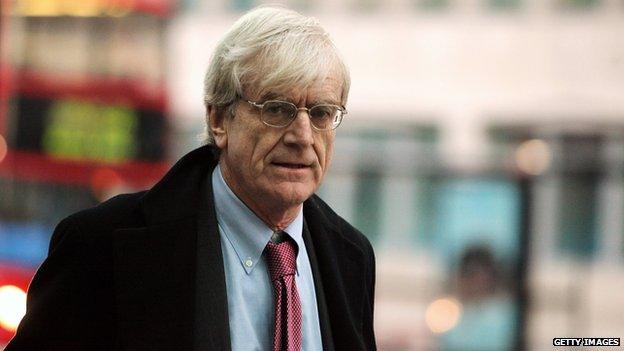Banks don't trust themselves
- Published
- comments

There is a big question begged by Sir Richard Lambert's recommendations for collective action by the banks to raise their standards of behaviour.
The point is that in coming up with a plan to create a new organisation to spur improved conduct on all banks, Lambert is responding to a request from the chairs of Barclays, HSBC, Lloyds, RBS, Santander, Standard Chartered and Nationwide.
So what is it about banks which means that, unlike supermarkets or pretty much any other industry, the banks don't believe competition provides them with enough of an incentive to behave well.
Is the problem that most of us are still reluctant to take our business elsewhere when our banks let us down - so competition doesn't operate with sufficient intensity?
Is it that so much of what they sell, both to individuals and to institutions, is so complicated and opaque, that most of the time we don't know when we're being ripped off?
Is it that the rewards in their investment banking operations are so enormous, and the pressures from testosterone fuelled managers are so great, that no human investment banker can be confident of permanently resisting the temptation to cut corners and rig markets.
One for all, and all for one
Well, the bleak truth, Lambert would concede, is that it's all that and probably more.
In fact, Lambert is so persuaded that banks can't be trusted to rise phoenix-like of their individual volition from the savage bonfire of their finances and ethics that he argues there should be no bankers involved in choosing the board of the new standard setting body and that bankers should be in a minority on that board.
Also, he does not believe the new conduct monitor will succeed unless every bank of any size signs up as a member - and that includes the foreign investment banks operating in the City of London, and the new so-called challenger banks.
His fear is that unless it is one for all and all for one, banks will not force proper behaviour on their respective people, because they will always have the excuse that Mega Bank down the road is still swimming with the sharks and stealing the fastest prey and profit.
Banks' dilemma
And over time Lambert thinks there's a case for every individual banker being able to become a member of this new conduct monitor, and not just the institutions - though he baulks at doing this from day one, because of the organisational challenge of herding tens of thousands of bankers.
So here's the dilemma for the big banks if they follow through on their commitment to broadly do what Lambert proposes.
There is growing political pressure for much more active engagement by regulators in approving all products they sell and in setting prices.
Having conceded via their encouragement of the Lambert plan that the market fails to provide sufficient incentives for them to treat customers fairly and honestly, how do banks resist the argument that the market fails in other more fundamental ways too?